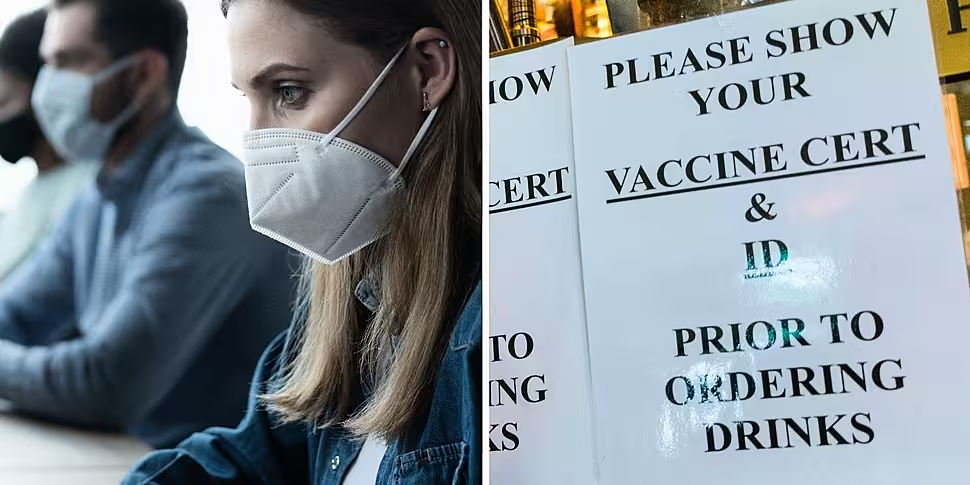The head of ISME says employers should not 'have the finger pointed at them' for trying to enforce COVID-19 rules.
It comes as most employers believe they should have access to an employees' vaccination status.
That's according to a new survey from law firm McCann FitzGerald and consulting firm Mazars.
It also found more than half of organisations say the inability to process employees' vaccine status data has impacted on a return to the office.
ISME CEO Neil McDonnell told Newstalk Breakfast this is creating a big problem for employers.
"We're not surprised with the results of that survey because the manner in which the new close contact information is to be processed by people - albeit it says people, not employers - but it relies on where you are in your vaccination cycle, your age and whether you've been infected or not.
"It is singularly unhelpful that employers do not know that, and it also creates difficulty for their vaccinated employees."
He says this is because employers cannot ask workers their status, and other employees are uncomfortable with this.
"There are employees across a whole spectrum of exposure to COVID out there, and they disclose their vaccination status to one another.
"But we've dealt with cases where within employments one person says 'I'm not vaccinated and I'm not going to get vaccinated' and the other employees have a very particular difficulty with that - which they represent to their employer - who's not entitled to act on that information.
"And quite frankly we find it bizarre that your local publican or your local restaurateur is entitled by law to see your vaccination cert, but your employer - where we may go into an office or work setting for eight hours - cannot".
'Necessary in the greater good'
And he says the rules are overly complex.
"Your average employer, who's not a lawyer or a qualified HR professional, is being asked to navigate an extremely complex set of rules.
"And the new close contact rules are actually really difficult; you have to read them multiple times to make head or tail of them.
"But it is not helpful to approach these public health measures and these workplace safety measures from a civil liberties perspective.
"We could ultimately argue that not being allowed to take a couple of drinks before we hop in our car, or being required to wear a seatbelt, or being required to get Garda vetting if we work with children or vulnerable people.
"These are all intrusions into our civil liberties, but we accept those because they are necessary in the greater good.
"And it should not fall to employers to have the finger pointed at them because they are trying to do that".
Earlier this month, employment law solicitor Richard Grogan said the rules should be changed.
He said: "The difficulty that employers have at the present time is that they can't ask anybody if they're boosted.
"So if somebody says 'You're a close contact' and the employee says 'Right, fine' and the employee just sits there.
"And the employer says 'What about going home?' and the employee says 'You can't ask me if I'm vaccinated'".
And Richard said it comes down to personal responsibility.
"So the answer on this is down to personal responsibility - now that's not great for an employer and it's not great for other employees.
"Particularly if somebody says 'I know Richard isn't vaccinated', for example, and the employer says 'I can't even ask them about this'.
"So I mean we have to have the rules changed in relation to an employer being allowed ask somebody if they're vaccinated, if they're exercising the 'I don't need to isolate' provision."









